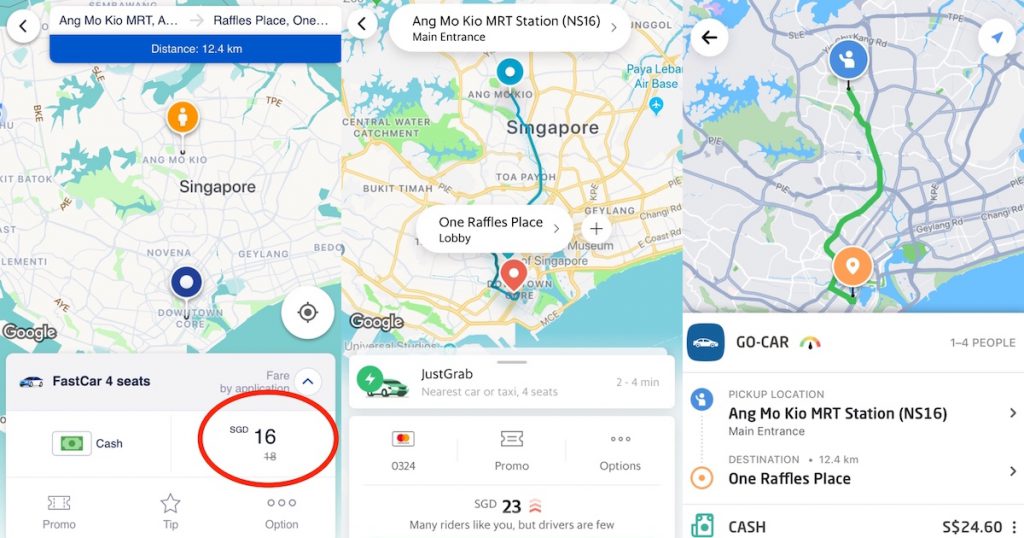When Uber exited Singapore (along with other regional markets) back in March 2018, many local commuters were upset at the loss of a favourite ride-hailing option.
But as the saying goes: when one door closes, another opens.
The exit of Uber has brought about an onslaught of new ride-hailing players in Singapore.
Particularly, 2018 saw the entry of six ride-hailing apps in Singapore: Gojek, Ryde, TADA, Kardi (it has since merged with India’s Jugnoo), FILO and Urge.
It’s unclear if the last two apps are still operational though — FILO’s app is no longer available for download in Singapore, while there has been no updates from Urge on its official pages. Its website is also down.
FastGo Promises To “Always Be Cheaper”
This year, Vietnamese ride-hailing firm FastGo made its debut in Singapore on April 30.
In Vietnam, FastGo offers three types of ride options: private cars, taxis and motorbikes. But like Gojek, it is only offering private-hire car services here.
Prior to its Singapore launch, FastGo founder and chairman Nguyen Huu Tuat said that “any FastGo ride will always be cheaper than the others.”
That is a very bold statement indeed, so we have decided to put this claim to the test and compare its fares to two other dominant ride-hailing firms in Singapore, namely Grab and Gojek.
For the test, we have randomly chosen two destinations as the pick-up and drop-off point (from Ang Mo Kio MRT to One Raffles Place); and compared the fares across different times of the day to see if there’s any fluctuations.
Is it really as cheap as it says? Let’s find out.
Before 9AM: Morning Rush Hour

12PM: Lunch Hour

4PM: Afternoon Meeting

6PM: Evening Rush Hour

10PM: Post-Dinner Date

After 12AM: Late Night Out

Verdict: FastGo Cheapest Only During Peak Period
Based on these comparisons, it’s clear to see that FastGo is not the cheapest among others.
The only time it prevailed was during the morning rush hour. Grab and Gojek fares had skyrocketed due to high demand, while FastGo’s fares showed the standard fare of $16.
According to FastGo founder, they do not charge peak period surcharges so this could be its USP (unique selling proposition).
Meanwhile, Grab’s and Gojek’s fares are often comparable to each other (except for the evening rush hour — Grab at $12 versus Gojek at $17.10).
Do note that these fares are exclusive of promo code discounts, which Grab and Gojek often dish out to users.
Meanwhile, FastGo is not running any promo codes at the moment though we’ve noted that $2 is automatically shaved off from the fare (presumably a welcome discount).
To add on, both FastGo and Gojek only offer private-hire car services.
Grab on the other hand, has many other ride options that offer cheaper fares, such as GrabHitch and GrabShare.
While competitive fare is usually the deciding factor to get riders on board (pun intended), other factors such as the waiting time also plays a huge role.
As Grab and Gojek has a significant fleet of drivers, waiting time is usually quite short.
In contrast, FastGo only began recruiting drivers on April 1, so they might not have built a solid driver base in Singapore yet.
Having few drivers would mean longer waiting time for the user, or worse, no cars are available for booking.
That said, FastGo is still fairly new in the local ride-hailing scene so let’s give it some time to strengthen its foothold here.











